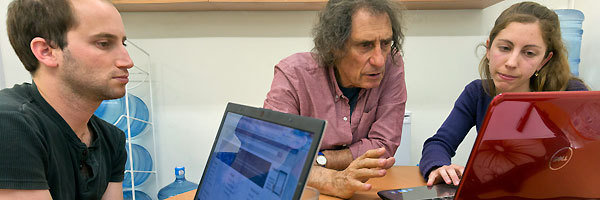
Further decoding of processes in the brain
The sensory organs act as antennae for our brain. With their help, it can perceive information from our environment. In order to react to this information, the brain must process these signals on different levels and in its many different regions.
The Max Planck Society and Hebrew University of Jerusalem want to explore this interaction further and, to this end, have established the Max Planck-Hebrew University Center for Sensory Processing of the Brain in Action. The Center is sponsored on the German side by the Max Planck Institute of Neurobiology. Its direct partner in Israel is the Edmond and Lily Safra Center for Brain Sciences at Hebrew University of Jerusalem, headed by the scientists Idan Segev, Adi Mizrahi and Haim Sompolinsky.
Researchers from both institutions are investigating the functional building blocks of the brain – its neuronal circuits – in joint projects. Their aim is to decode the correlation between the processing of sensory impressions and behaviour. The team of scientists at the Center brings together know-how in the different sensory systems – touch, vision, hearing and olfaction. It also works with different animal models, such as flies and mice.
With the Center, the two partners complement their capacities at experimental level and in the fields of computer-aided and theoretical modelling. In this way, the researchers can study individual neurons and neuronal circuits and analyse how sensory impressions are processed in the brain. Particular emphasis is placed on understanding how certain behaviours arise from sensory perceptions and how the behaviours affect the sensory impressions in turn. “The Center’s outstanding team is ideally situated to tackle one of the greatest unresolved questions of the neurosciences: how sensory processing in the brain influences the behaviour of animals and vice versa,” emphasises Max Planck President Peter Gruss.
The new research partnership promotes exchange between German and Israeli scientists, and also includes the support of junior scientists. To this effect, talented post-doctoral scientists are offered scholarship programmes over periods of three to five years, and can carry out research at both locations. The Center also plans to organise workshops and conferences on its research focus.
HR
Picture: Idan Segev (middle), one of the leading scientists of the center, discusses theoretical models with his students. © dpa/MPG